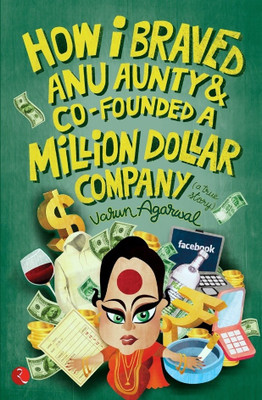How I Braved Anu Aunty and Co-Founded A Million Dollar Company
-- Varun Agarwal

-- Varun Agarwal

This is the story of Alma Mater Store, and 2 graduates, just out of college (one quits his first job after a few months to work full time on this venture, and the other couldn't come to terms with something like working for someone else).
Having seen several young entrepreneurs from close quarters during our recent stint at Microsoft Accelerator, the whole story sounded so familiar to me.
Anu aunty is one of those fussy neighborhood aunties of Varun (co-founder of Alma Mater and the author), who believes that all a kid should do in life is get perfect scores in every exam that's thrown at him/her, clear the first interview that they ever attend, grab the first promotion in their batch at work, start paying EMI for car and house before turning 25, and be the most sought after bachelor/bachelorette (by uncles and aunties) in the neighborhood.
Varun, a Bangalore dude from Bishop Cotton hated all that to the core and always dreamed of starting his own company along with another classmate Mal, of course, whenever they were 3 beers down. After several such beer sessions, one day they finally brave anu aunty and come up with a detailed business plan (on a tissue paper in their favorite watering hole) to start a company that sells customized T-shirts and Hoodies for alumni of popular schools. Alma Mater Store is born.
As is the case with many young and not so young entrepreneurs, their 'detailed business plan' had just a few lines. Get T-shirts printed for different schools and somehow sell them. They just felt that its a cool idea. That's it. They figured out the rest on the way as Dick Costolo of Twitter famously said, "The key is to just get on the bike… and the key to getting on the bike…
is to stop thinking about ‘there are a bunch of reasons I might fall
off’ and just hop on and peddle the damned thing. You can pick up a map,
a tire pump, and better footwear along the way."
They could add several schools from different cities in India to their online only store in a couple of years, and even started delivering overseas. Their company was worth a million dollars, within no time. As the author says, no Porsche cars or bungalows worth million dollars, yet. But, they are living their dream and may reach there one day.


